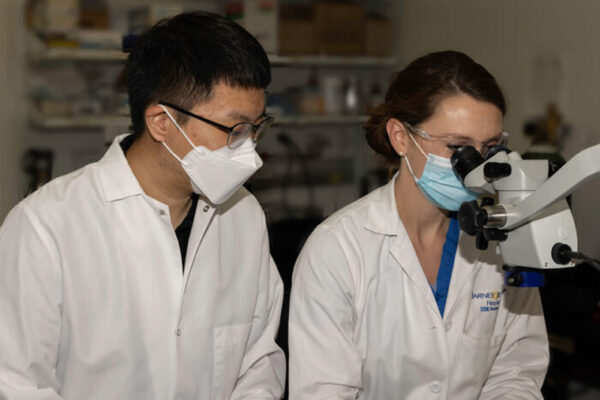Postdoctoral researchers receive Keck fellowships
This year’s W.M. Keck Fellowships in Molecular Medicine have been awarded to three postdoctoral researchers at Washington University. The fellowships are funded with a gift from the W.M. Keck Foundation.
$33 million to support study comparing anesthetic medications
Funded by a $33 million grant, a new study led by School of Medicine and University of Michigan researchers will compare intravenous propofol to inhaled anesthetic drugs to determine which of the common anesthetic drugs offers better patient recovery experiences and improved clinical outcomes.
Along with child tax credits, invest in child development accounts
Democrats have called for a permanent expansion of the monthly child tax credit. In making the expanded credit permanent, lawmakers can leverage the power of child development accounts to build assets for all children in the United States, says an expert on asset building at Washington University in St. Louis.
17-year study of children associates poverty with smaller, slower-growing subcortical regions
Research from the lab of Deanna Barch shows a lasting relationship between childhood poverty, brain development.
University starts new program in genetic counseling
Genetic testing has become so commonplace that you can send off a swab to 23andme.com and for $200 find out your genetic health risks. The problem, aside from the fact that not all genetic testing is accurate, is that genetic test results must be interpreted.
Olympics provide untapped chance to improve health for all
Given the increased interest in sports and exercise around the Olympics underway in Tokyo, events such as the Summer Games represent an unrealized opportunity to improve global health, finds a new paper from the Brown School at Washington University in St. Louis.
COVID-19 Exposure Notifications system launches for university community
Faculty, staff and students at Washington University will now be able to use a COVID-19 exposure notification system through their smartphones. The university is piloting the system, called MO/Notify, launched with approval from the state of Missouri.
NIH funds Rudra, Jackrel to improve vaccines for elderly
Washington University’s Meredith Jackrel and Jai Rudra and are researching nanofiber materials that will eliminate the need for vaccine adjuvants.
‘Good cholesterol’ may protect liver
A new study from the School of Medicine shows that a type of “good cholesterol” called HDL3, when produced in the intestine, protects the liver from inflammation and injury.
Promoting physical activity is key to achieving U.N. Sustainable Development Goals
New evidence supports the integration of physical activity promotion strategies as a key part of the action plan for achieving the United Nations Sustainable Development Goals, finds a new study led by Brown School researchers.
Older Stories









